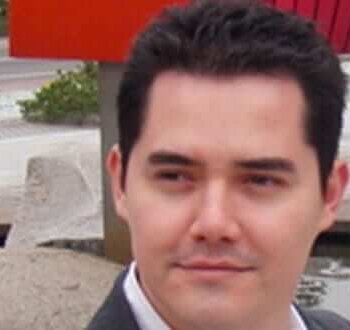An experienced strategic entrepreneur with an unparalleled track record of entrepreneurial success, Peter Jacoves now lends his uncommon talents and abilities to Nationwide Debt Reduction Services . As the CEO of the innovative debt settlement company, Mr. Jacoves is responsible for overseeing the company’s continued growth within a rapidly expanding industry while also ensuring Nationwide Debt Reduction Services consistently works toward achieving the lofty goals and objectives outlined in its core mission.
- In your own words what do you do?
As the CEO of an industry-leading debt-settlement company, my responsibilities are naturally quite diverse and require a great deal of time and energy, all of which is made entirely worthwhile by the results we consistently deliver for our clients. My principal focus revolves around striking the ideal balance between our efforts to expand and our efforts to provide truly exceptional products and services to clients in need of assistance managing their outstanding debt obligations.
- What led you to your current business?
It was clear to me that even though a sizable percentage of Americans were struggling with their finances in some significant way, very few knew where to turn for help or were simply too proud to admit that they were enduring hardships due to debt or other financial issues. Nationwide Debt Reduction Services is built around the premise that financial hardships should not be endured alone and that a greater focus on financial education is necessary to ensure consumers do not continue to struggle in this way.
- Could you walk us through your process of developing your business?
There were two key elements involved in process of developing the business that I felt would be instrumental to the company’s ability to succeed in a highly competitive and rapidly expanding industry: The development of a highly effective front-to-back-end solution along with the seamless incorporation of several core tenets of direct marketing. Focusing on these elements during the developmental stage allowed us to create the unique business model that is now at the core of the industry-leading debt settlement company.
- Did you encounter any particular difficulties in the beginning?
Yes, but the difficulties we encountered were relatively minor and never inspired any lingering sense of doubt in the business model we created.
- What is your long-term plan?
Our long-term plan is to expand Nationwide Debt Reduction Services reach without detracting from its consumer-oriented focus. This plan is already in motion, and over the long term it is designed to allow us to better assist the sizable number of consumers burdened by outstanding debt obligations.
- Could you share with us some industry insights?
Since the industry has undergone such rapid expansion and is clearly positioned to continually expand at an even greater rate, the key to thriving over both the short and long term is a thoughtful and balanced growth strategy that properly accounts for the host of variables that tend to crop up during periods of sudden growth.
- What are some important lessons you’ve learnt about entrepreneurship?
The most important lesson I’ve learnt over the years is that there is simply no replacement for a sound strategy featuring a clear emphasis on a consumer-oriented approach. Focusing on the consumer in this way has made it that much easier to succeed — even in the face of an unexpected development or some other entrepreneurial difficulty.
- Any tips for achieving success?
An unyielding commitment to providing something of genuine value to the consumer can be found at the foundation of every successful entrepreneurial endeavor. This is the simplest step any entrepreneur can take to build a company capable of achieving sustained success, even in the most competitive or unpredictable of industries.





























